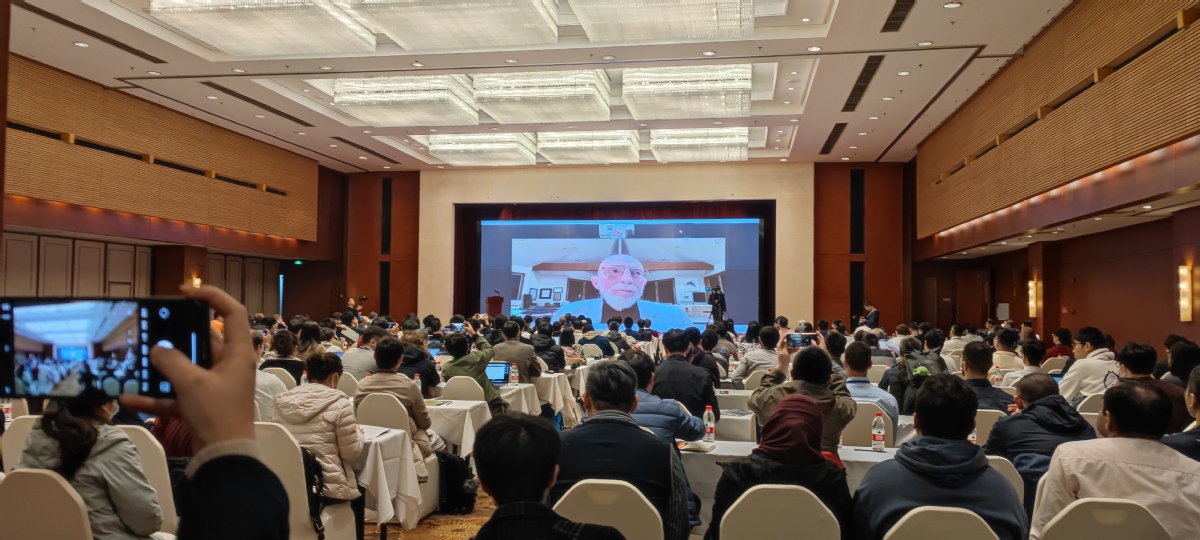Texas Symposium on Relativistic Astrophysics kicks off in Shanghai


More than 400 international and domestic scholars in the field of astronomy and astrophysics gathered in Shanghai for the 32nd Texas Symposium on Relativistic Astrophysics that will run from Monday to Friday.
The Tsung-Dao Lee Institute of Shanghai Jiao Tong University won the right to host the event. Shanghai is the first city in East Asia to host the symposium.
The symposium will cover all major topics on high-energy and particle astrophysics, cosmology and relativity.
Kip Thorne, a physicist from the United States and the Nobel Prize laureate for Physics in 2017 delivered an opening speech online during the event.
"We're all interested in unraveling the mysteries of the universe and exploring the formation and evolution of matters under extreme cosmic conditions," said Zhang Jie, director of Tsung-Dao Lee Institute and an academician with the Chinese Academy of Sciences.
"We hope that the conference will allow scholars from all over the world to communicate with each other, be better inspired by each other, and promote further exchanges and cooperation in the future."
Since its establishment in 1963, the Texas Symposium on Relativistic Astrophysics has been one of the most prestigious international conferences in astronomy and physics. It takes place in different cities every two years.
The symposium has witnessed many important developments in astrophysics and cosmology. For example, at the inaugural symposium, New Zealand mathematician Roy Kerr presented his famous solution called "Kerr metric" for rotating black holes. During that same event, the enormous powers of distant quasars were discussed for the first time, marking the beginning of the exploration of extreme relativistic phenomena in astronomy.
Founded by Tsung-Dao Lee, a prominent Chinese-American physicist and Nobel laureate in Physics, Tsung-Dao Lee Institute was established in 2016 with the support of various Chinese government agencies and aims to become a first-class physics-astronomy research institute in the world, as well as boost research and develop talents in basic sciences in China.
- Archives detailing crimes of Japanese unit released
- 'Reservoirs of primordial water' may be buried deep within Earth
- China remembers victims of Nanjing Massacre, 88 years on
- China's Kuaizhou-11 rocket launches commercial experimental spacecraft
- Relic dates Jinan founding to around 4,200 years ago
- New rocket set to debut soon, launch six satellites




































